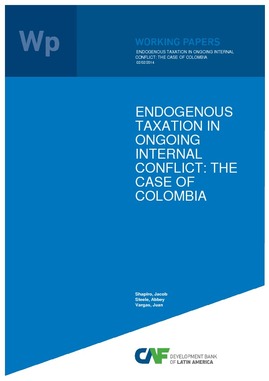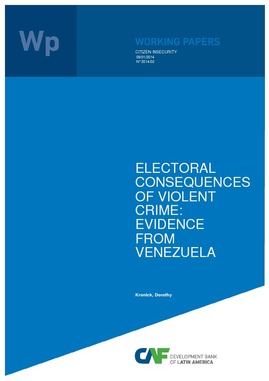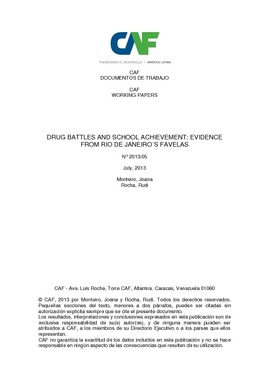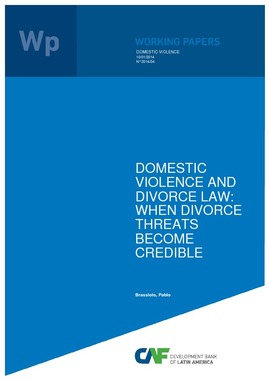Endogenous Taxation in Ongoing Internal Conflict: The Case of Colombia
Resumen
Recent empirical evidence at the cross-country and subnational levels suggests that internal conflicts harm state capacity and tax performance. On the face of it this is odd: internal conflict should create strong incentives for governments to develop the fiscal capacity necessary to assert full control over their territory, just as sociological theories argue external conflict did. We argue that one reason for the pattern is that internal conflict enables groups with de facto power to capture local political and economic institutions. We test this mechanism in the case of Colombia using data on tax performance and institutions in each of Colombia’s 1,120 municipalities. We show that municipalities most affected by internal conflict have tax institutions consistent with the preferences of the parties engaging in violence. Those suffering right-wing violence feature higher total property tax revenues and more land formalization. Municipalities with substantial left-wing guerrilla violence collected less tax revenue and saw less land formalization. These outcomes translate into differential level of social investment and social outcomes. Our findings provide the first concrete evidence that internal armed conflict helps interest groups capture municipal institutions for their own private benefit.
Materia
País / Región
Fecha
2014-02Citar de esta publicación
Item perteneciente a la Colección
Autor
Shapiro, JacobSteele, Abbey
Vargas, Juan
Items Relacionados
Electoral Consequences of Violent Crime: Evidence from Venezuela
To what extent to do voters hold political incumbents accountable for policy outcomes? This paper considers retrospective voting in the context of violent ...
Drug battles and school achievement: evidence from Rio de Janeiro's favelas
This paper examines the effects of armed conflicts between drug gangs in Rio de Janeiro's favelas on student achievement. To identify the causal effect ...
Domestic Violence and Divorce Law: When Divorce Threats Become Credible
This paper investigates whether lowering the cost of divorce can reduce domestic violence. The cost of divorce influences the bargaining position of ...






